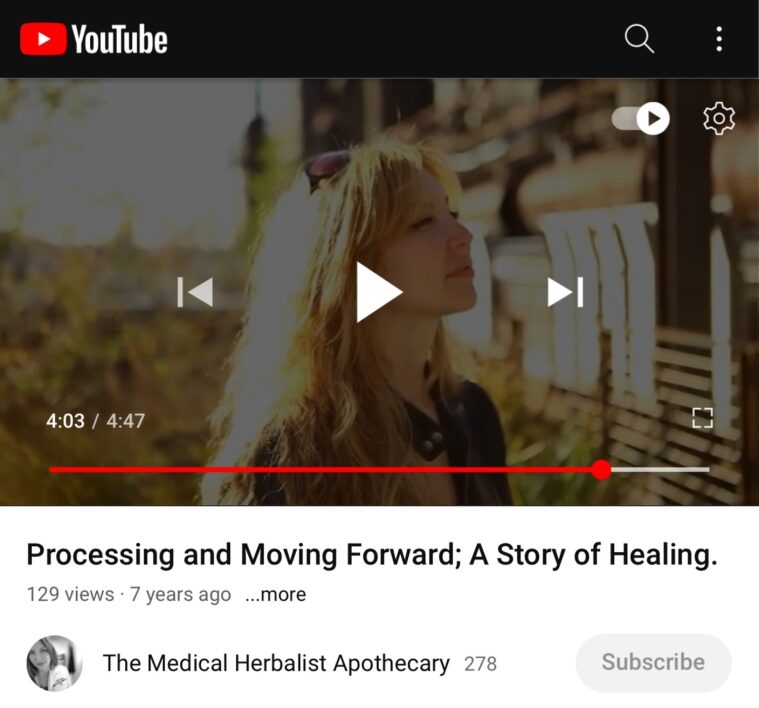Aesthetics Post Series: Hair
Have you ever heard anyone say,
“I don’t want a full head of healthy hair.”
No? I didn’t think so.
The Hair and Beauty Industry is resilient. Even in financial recessions, people will make funds available for hair care products, styling services, hair restoration treatments, and dietary supplements.
In 2018, the global hair care market (largely shampoo and conditioner products) is estimated to be worth approximately 87.9 BILLION US dollars, per Statista [a marketing research and commercial data analysis company].
This number does not even consider the market value for hair restoration treatments, styling services, and dietary supplements targeted at this focus on healthy hair.
Lets get down to basics:
On a physiological level, the body considers hair a “non-essential” body tissue. That is to say, the body first directs basic nutrients [amino acids, fatty acids, glucose, vitamins, minerals] to our primary organs — brain, heart, kidneys, lungs, liver — for life-sustaining function.
For brevity sake, this blog entry as part of an Aesthetics Series will remain hyper-focused on hair and where my own expertise comes into the picture. That is, how we grow hair and what is at the source of challenges to maintaining it.
There are some factors we can and cannot control when it comes to maintaining a full head of hair: Age, Genetics, Certain Dysfunctions/Illnesses, Requirement of life-saving medications, Pregnancy + Childbirth, essential surgeries, and traumatic events.
Let’s explore a number of factors that impact hair quantity and quality — beginning with those more fixed factors, requiring long-term support.
Age + Genetics:
We can work to support the natural process of aging through our diets and therapeutic application of herbs and food concentrates (ideally).
Some Age + Genetic predispositions may require additional interventions to diet and herbal medicine therapeutics, such as hair restoration procedures with a board-certified Plastic Surgeon and/or properly qualified Nurse Injector. Check into:
American Academy of Facial and Plastic Reconstructive Surgery (www.aafprs.org)
American Academy of Cosmetic Surgery (www.cosmeticsurgery.org)
American Society of Plastic Surgeons (www.plasticsurgery.org)
Illness/Treatments:
Certain Autoimmune disorders and a range of dysfunctions and illnesses require prescription medications that directly impact hair health.
Infections or illnesses – regardless of treatments applied – can trigger hair loss and/or loss of hair quality, integrity, and texture.
A number of medications cause notable loss, thinning, or weakening. Sadly, some side-effects to certain long-term medications are insurmountable.
Working together with Patients’ physicians, we explore potential of addressing certain issues using Herbal Medicine alternatives, but there are some conditions where medications may be unavoidable. A Plastic Surgeon can be consulted for options to complement your healthy personal lifestyle habits.
Surgeries:
Repair and Recovery of the body following surgery of any type requires enormous nutritive (dietary + therapeutic) and hormonal resources.
Ideally, we start Hormonal and Nutritive support with Custom Herbal Medicines and whole food concentrates in the months prior to surgery.
A complex medical history, or chronic mundane issues means that the longer we build upon our support PRIOR to surgery — the better.
For essential surgeries, sometimes we don’t have much time to plan ahead — but for ELECTIVE surgeries — such as Plastic Surgery or certain Orthopedic procedures — most people anticipate surgery quite some time ahead (even before they decide on the surgeon to perform them)!
People watch Before/After videos, research surgeons extensively, and learn about all of the options available quite far in advance — sometimes a year or longer! THAT is when someone should be starting Care, ideally — the time we can recalibrate Hormones and work to support Cellular Metabolism.
A number of monthly cycles prior to surgery is the most effective timing to help reinforce the integrity of GENERAL circulation, MICRO circulation, connective tissue integrity, and everything required for sustaining incisions, manipulation, expedite tissue mending, minimize swelling and enhance lymphatic drainage for fluid clearance.
Pregnancy + Childbirth:
Hormonal adaptations in Pregnancy can trigger a significant hair loss event following Childbirth.
During Pregnancy, the body is in a tissue-building mode. This causes the body to retain hair longer and reduce normal shedding through 9 months of gestation.
It can feel quite startling to see the normal shedding PLUS some of what was retained through pregnancy.
If it creates notable thinning, we can support the hormonal rebalancing process. Anticipated sleep deprivation of new parenthood and post-pregnancy hormonal recalibration often requires attention and support.
Sustained/Unrelenting Stress – Trauma – Emotional Distress:
Sudden or protracted duration of high stress is depleting on the physical level as well as the mind, heart, and energy.
IDEAL timing to support the body is prevention and/or while in the thick of draining situations or crises — though many people struggle simply to get through each day. It has whole body impact upon hormones of the brain and body, which can include compromising hair quality and quantity.
Addressing these needs requires a longer, more hormone-focused approach than simply general nutrition or one-size-fits-all supplementation alone.
Overuse of certain adaptogenic plants can actually have an over-stimulating effect and work against the aims for restoring hair.
Some adaptogens simply stimulate the Adrenals to put out more hormone — but as with your vehicle, you can’t run a car from an empty gas tank. This requires REPLENISHING our hormonal resources rather than a simple stimulation of output!
In fact, generating a demand for Adrenal Output when depleted can deepen the core imbalance at-hand and worsen symptoms.
Additionally, there are adaptogens which require periodic pause of intake, as some can impart Liver Enzyme irregularity – or the Individual simply observes a tolerance leading to diminishing effects – with unrelenting use.
There are a number of medicinal plants requiring periodic rotation of use.
Selection of plants is highly individual in matching personal medical history and the specific response to nuances of the stressors, the type of trauma, grief management, and type of emotional distress.
Not all emotions are processed psychologically or energetically the same for each person.
Unrelenting stress and volatile emotion patterns act to deplete certain nutrients and hormone reserves over time — as such, hair follicles receive less and less nourishment while hormones used to build hair become further entrenched into imbalance. It is a perpetuating cycle unto itself.
Smoking:
Nicotine is a stimulating alkaloid, which causes the blood vessels to contract. Chronic vasoconstriction often damages the tiny blood vessels in the furthest tissues from the heart — which include arterioles and capillaries.
This chronic vascular tension restricts blood flow which brings oxygen and nutrients to the tissues and assists in moving waste products away for elimination.
What then happens is a starvation of these vital components from keeping cells alive and at their optimal function. Waste accumulates — including excessive fluids — leading to swelling. It becomes a nasty cycle.
As a side-note to demonstrate this: We often see loss of teeth because of damage to the microcirculation to the gums and teeth.
Smoking can impede proper healing throughout the body following any surgery — most notably of aesthetic nature.
Chronic stimulant use also depletes the body of vital nutrients, including vitamins and minerals.
Those who continue to smoke yet compensate with supplements are chasing a moving target because depletion rate exceeds supplementation efficiency.
Takeaway: Break the habit. Your hair and skin will thank you.
It may take quite a bit of time to replenish the body after years of habitual smoking — and some vascular/tissue damage may be permanent — but it will be worth the effort to quit.
Eating Disorders, Chronic Dieting, Excessive Nutritional Restrictions:
Loss of nutrients and malnourishment is only part of the picture here.
Chronic deprivation of food — such as restricted balance of foodstuffs, or eaten->purged — impacts the vital organs and General Endocrine regulation over time.
The body finds alternative ways to continue Cellular Metabolism in sustaining Life — but they are often sub-optimal adaptations with less desirable effects.
As mentioned, since hair is a “non-essential” function, the body will direct every bit of what is consumed and assimilated fully to the brain, heart, lungs, kidneys, and liver. Other organ systems suffer as well.
I have seen Patients with a history of Chronic Dieting, Severe Food Restriction, and Eating Disorders experience lasting hormonal and nutritive imbalances that require long-term support.
The sooner this is managed, the more effective the efforts toward hair restoration. It is critical that anyone with a history of Eating Disorders engage with proper talk-therapy counseling to reinforce efforts required to address hair concerns.
Short-term Medication Use:
Sometimes, medications are unavoidable.
Side-effects including hair loss related to short-term treatments are often reversible over a period of time following these treatments — depending upon the medication and duration of use.
We look at a 3-6 month window to slowing down the rate of loss, and seeing early signs of regrowth. Since hair grows an average of 1/4 to 1/2 inch per month in an optimally healthy adult, it may take a number of months following that period to continue supporting this rate of growth and adequate hair quality.
Hormone Imbalance and Hair:
Certain Hormone Imbalances that contribute to hair issues can be corrected over time with herbs and food concentrates matched to the Individual’s history and overall needs.
This goes beyond Reproductive and other Endocrine Hormones — it equally involves Central Nervous System Hormones and the regulation between them with overall cellular metabolism/function.
Some hair loss or impact to hair density/quality is reversible when temporary medications are discontinued and/or when Hormones have recalibrated.
Again, we look at a 3-4 month timeframe when we explore symptom onset with causal discoveries, and reference a similar timeframe of consistent support AFTER beginning Hormone Balance recalibration.
Since hair grows in relatively small amounts each month, it can require a number of cycles before we see hair gaining in length and scalp pattern density.
Overall:
Some combination of several factors mentioned here may require medical intervention to get a full clinical bloodwork work-up.
Bloodwork provides insight into precisely what hormones require specific attention. In some cases, we must integrate natural measures alongside conventional medications — at least for a period of time.
Each Individual has their own unique story as it relates to their history and current health status.
Much of the time, blood testing is in normal range, but responds to enhancing clinical functions within what is considered “normal”.
Perhaps we can call it OPTIMISING normal function for best results.
Word of Caution with an Example:
There are some popular isolated nutrients on the market, which can have some benefit when clinically “deficient” — but come with potential side effects when taken to excess.
One in particular is BIOTIN, amongst the B Complex range of vitamins. We see this in every hair supplement — with qualified reason.
Trouble with isolating individual nutrients out of context from the natural balance in our foods, is that UNLESS THERE IS A CLINICAL DEFICIENCY, we can create an imbalance with our Good Intentions.
Ideally, we supplement Biotin in-concert with the rest of the B Complex — using whole food concentrates and whole plant extracts rather than isolation. In some cases, excessive Biotin can cause Thyroid TSH level fluctuations – and without bloodwork, goes undetected until symptoms of imbalance occurs.
Blood testing to assess nutrient levels can be most helpful. This informs us of precisely what is required.
We can opt for oral or intravenous preparations.
We can isolate what is notably “out of range” — or we can opt for Whole Plant application.
Options are best tailored to the Individual — just as our fingerprints are unique to each of us, so should be our approach.
What are signs of EXCESSIVE Biotin? Glad you asked! It can include:
Skin Rashes
Digestive Upset
Problems with Insulin Release
Potentially alter some blood tests, including Thyroid Function
Interferes with Liver Function
Excessive Urination
Diminished Immunity due to a reduction of Vitamin C (Immune) and B6 levels (Neurological Impact)
Can increase Blood Sugar (Diabetics and Pre-Diabetics must heed this note when supplementing Biotin and Vitamin C. Also: Excessive isolated Vitamin C in Diabetic Women can disrupt blood sugar levels. Best to consume foods high in these nutrients as they occur naturally in foods. May use “Food Concentrates” (dried without heat and powdered without carrier or anti-caking agents)
What are some NATURALLY BALANCED plant sources of BIOTIN alongside the rest of the B Vitamin range? Short list includes, but are not limited to:
Seeds (including Quinoa, which is a seed eaten like a grain)
Nuts
Vegetables
Chlorella (water plant/algae)
Spirulina (water plant/algae)
Seaweeds (all varieties of edible seaweeds)
Improve MICROCIRCULATION with the consumption of these food examples (short list, including but not limited to):
Beets and beet powder (again, single ingredient without additives, carriers, flavourings, or anti-caking agents)
Dark red/blue/purple/pink berries and cherries (organic, please!)
Hibiscus tea
BE AWARE:
Many “tissue building” plants contain ESTROGENIC compounds.
If someone has a history of Fibroids, Endometriosis, Breast Cancer (or genetic predisposition), Tumours, and Gynecomastia (in men) — to name a few — they must be mindful to select alternatives for hair management.
This includes common Adrenal Restoratives such as Glycyrrhiza glabra (Licorice Root). There are a few contraindications with using Glycyrrhiza — including Thyroid issues, High Blood Pressure, and Breast Cancer / Estrogen-dependent issues such as the aforementioned (Fibroids, Endometriosis, Tumours, etc). We have plenty of alternative options in these cases.
**Also Note: Check all of your teas for Estrogenic plants if you have any of these concerns. Glycyrrhiza glabra (Licorice root) is common in many Asian herbal teas and therapeutic products, “Adrenal Tonics” on store shelves, and teas for Digestive issues. Additional Estrogenic-dominant plants include Soy and Foeniculum vulgare (Fennel).
READ YOUR LABELS, and do your research beyond convincing marketing! Fancy bottles, Untrained Influencers, and clever websites can be compelling — but “one size fits all” only works for rain ponchos!
Some isolated nutrients as B Complex vitamins can be sourced from toxic raw ingredients — such as petrochemicals. That’s right — Petroleum. Just like that which fuels our vehicles. (yuk!)
Some fat soluble nutrients like Vitamin E are also synthetic, and quite unhealthy. It may be a royal pain in the bum, but call the manufacturer and see whether you can get a list of sources.
I’ll add a cheat sheet footnote on this:
I’ve called supplement companies for my Patients’ Care on a number of occasions, and received variations of vague blanket answers as “Its food based” — okay, but from WHAT FOODS?
I’ve enquired to confirm any potential allergens, and while the product says “gluten free” on labels, sometimes they will admit to traces in the capsules or containing Xanthan Gum for texture/filler (potentially sourced from a gluten-containing foodstuff).
Understandably, many supplement companies deal with multiple nutrient brokers before they take possession of these ingredients — so they really can’t confirm with certainty as to precise sourcing.
This is why I tend to recommend WHOLE food, single-ingredient concentrates (typically powdered).
Single ingredients are far easier to trace to their source, and to confirm how they are dried to avoid nutrient-damaging HEAT.
Whole Food and Whole Plant preparations equally contain more than just vitamins and minerals — there are various enzymes and co-factors which assist in absorption, assimilation, and efficacy.
On Food Concentrates:
WHEN IN DOUBT, always choose a single ingredient ORGANIC food concentrate – rather than combination supplements with a collection of ingredients.
Why?
There may be only ONE ingredient not ideal for each of us in the blended combination, but if it is something we consume on a DAILY basis at high concentrations, it will become cumulative in the body.
Single-ingredient foodstuffs puts the control of dosing into your own hands to modify as you observe your body’s responses.
Watch urine concentration, bowel movement habits, digestive functions like Acid Reflux, and general changes in everyday function.
Troubleshooting product reactivity becomes murky with multiple ingredients.
SIMPLE IS BEST.
KNOW THE SOURCES.
BEST: Organic ingredients using cold-drying methods that do not include heat (which destroys nutrients and enzymes).
Trends:
There are a growing number of plant based, low sugar beverage powders on the market today — which can be a delicious complement to our overall approach. Many are now organic, with a variety of plants.
These may include mushroom lattes or chai spiced teas, containing various plants for general nutrition, cognitive focus, or immune function.
Since powdered herbs are not absorbed as efficiently — or concentrated as the fluid extracts I apply in my practice — I am not usually too concerned when Patients are using them occasionally. That said, I usually have them take a photo of the ingredient list so I may review any potential red-flag ingredients that do not align with or support their personal medical history or overall goals. (any ingredients with contraindications alongside their prescription medications or functional imbalances)
In those situations, I will make suggestions for alternatives they can try. Sometimes it is with the same manufacturer — sometimes it isn’t. Sometimes, it is a hard NO to a supplement or food/beverage if it is undermining their safety.
Many food concentrates or powdered beverages contain herbs that are suitable for occasional — but not daily — use.
Food Sensitivity Testing
Testing is often essential when it comes to making educated dietary recommendations for each person with which I work.
Seeing what plant families trigger IgG inflammatory marker elevation assists me in knowing the herbs and food concentrates best avoided, as well.
The simplest option for at-home screening that I can suggest is:
Everlywell Food Sensitivities Comprehensive Option
https://www.dpbolvw.net/click-100378302-14037758
Supplementation is NOT a matter of “if a little is good, then a lot is better.”
RATHER: A METHODICAL and SIMPLIFIED approach — with a solid rationale for each Food Concentrate — is essential.
The key is to:
- BEGIN from your foundation of nutrient-dense FOOD in your DIET.
- BUILD upon this with WHOLE FOOD concentrates — that DON’T come in capsules (ideally).
When there are deeper Hormonal and Metabolic Imbalances, then we enter the realm of applying Medicinal Herbal Medicines that are custom compounded for your own personal bloodwork, medical history, lifestyle considerations, type of hair issue, and more clinical assessments.
Remember: As much as it may be important to our sense of self-confidence, hair is a “non-essential” tissue, according to the body’s primary requirement of SUSTAINING LIFE. This means the primary organ systems get nourished FIRST at the expense of all else.
TRANSLATED: Before we can expect HEALTHY HAIR, we must FIRST RECALIBRATE the WHOLE BODY and the factors that influence HAIR HEALTH.
Cheers to giving your Mane of Hair some Love!
Tami

photo credits:
Ilyuza Mingazova







